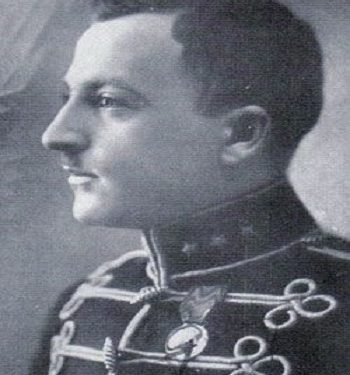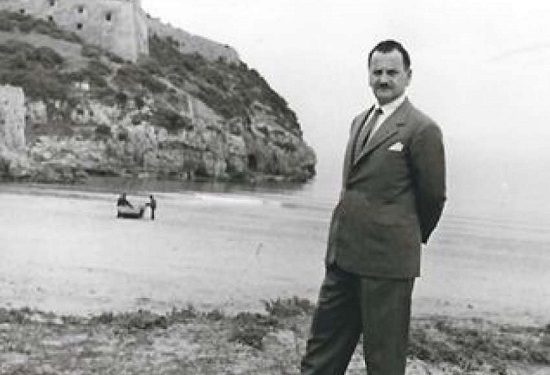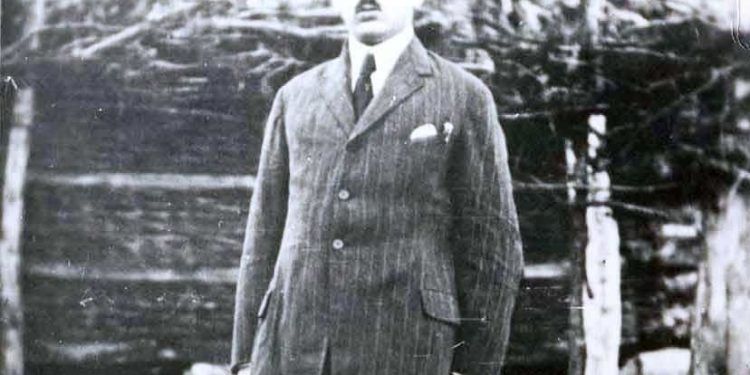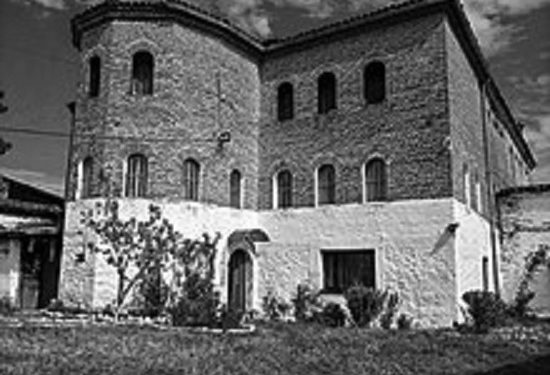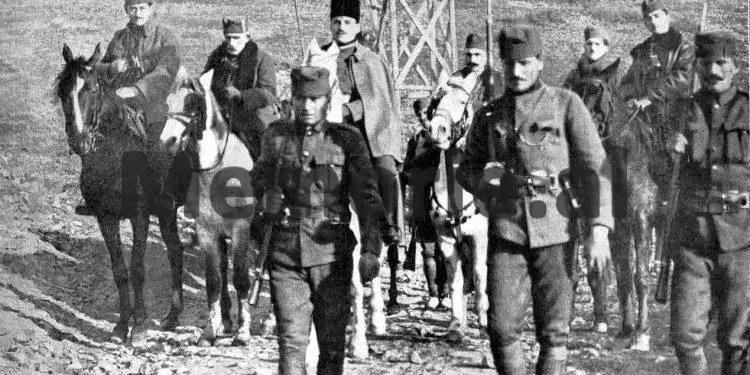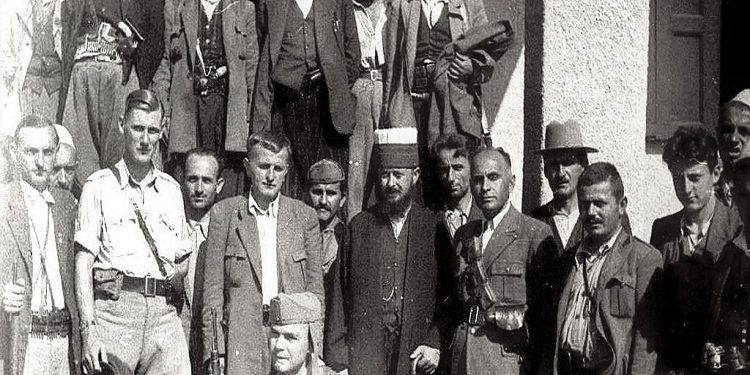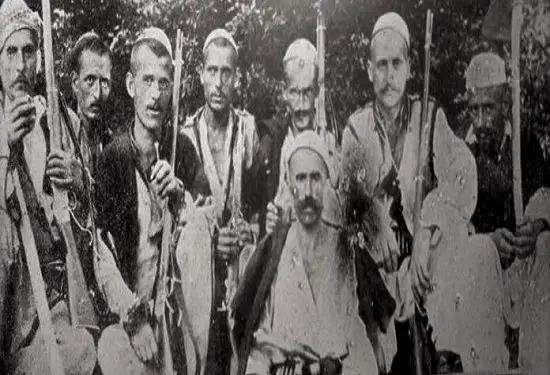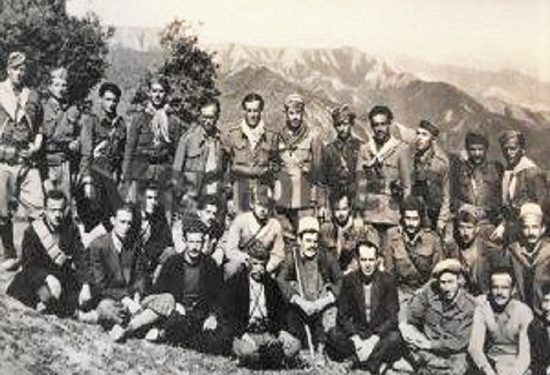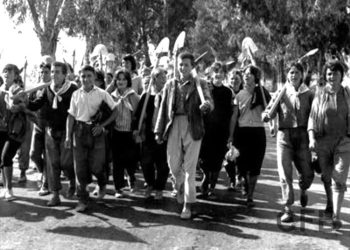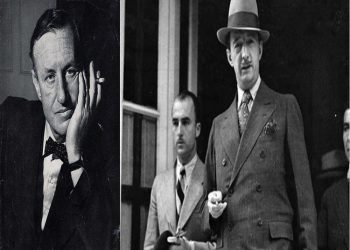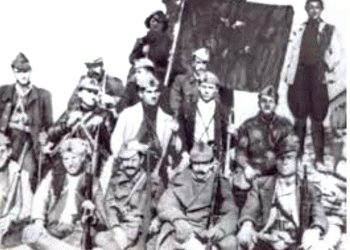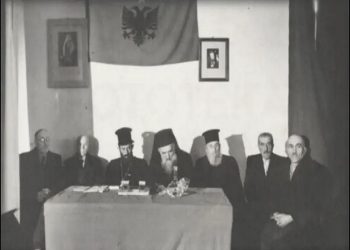From Dodë Progni
The fifth part
-The massacre of Herec – criminal act of the Yugoslav and Albanian communist leadership-
I – THE “KRYEZIU” MOVEMENT
Memorie.al / “Kryeziu Movement” was the name of the Nationalist Anti-Fascist Movement, in Kosovo and Northern Albania, during the years 1940 – 1944, at the head of which were the brothers from Gjakova, Gani, Said and Hasan Kryeziu. Its strategic goal was the organization of the Anti-Fascist Movement in Kosovo, its liberation from Nazi-fascists, separation from Serbia and union with the mother country, Albania. The Kryeziu brothers, like hardly anyone else in Albania at that time, had understood since the beginning of the Second World War that the most possible way to solve the Albanian national problem was to secure support from a great Western power, such as Britain e Madhe, and that such a thing could only be achieved by fighting against the Nazis.
Continues from last issue
– The family of Halil and Zenel Hoxha from Bregu i Paci (Bytyç). One of the most famous families in Tropoja. Known for faith, manliness, generosity, nationalism and anti-communism. Important shelter and support for Black Chiefs and officers of the British mission during 1943-44. After the liberation, it was hit hard by the communist dictatorship. As a nationalist and anti-communist, Halil Hoxha was shot by the communists in 1946. Zenel Hoxha, a former comrade-in-arms and organizer in Kryeziu’s forces, was imprisoned and died of torture in Shkodra prison in 1951. From this family, they were imprisoned 11 of its members and suffered about 100 years in prison.
Eighteen others, did about 280 years of exile. Fourteen members of this family were forced to leave the Motherland and flee. Those who remained in Bytyç were declared “kulaks” and carried on their backs, longer than any other family in the Tropoja district, all the serious consequences brought by this dirty setting, invented by the communist dictatorship, to suppress the opponents of political self. In a word, the communist regime practiced an unprecedented genocide on Hoxhaj e Paci.
– The communist regime declared the 24 martyrs of Hereçi Hill, former comrades of Gani Kryeziu, enemies and traitors. To them, you persecuted the families, classifying them as families with a bad biography. Their sons and daughters, their relatives, for 45 years in a row, carried the heavy weight of the class struggle on their shoulders. In fact, these people never understood and were never convinced of the “guilt” that their fathers had committed, fighting and sacrificing their lives for Kosovo and a free, democratic Albania. These people had the right to hold their heads high and be proud of their fathers and relatives, brave warriors and men of faith, but the communist dictatorship denied them this legal right!
If we go to the facts further, it turns out that almost the entire province of Bytyç, the most important base and support of the Anti-Fascist War in Northern Albania, which was raided and burned by the Nazis, like no other province in Albania, was persecuted from the communist regime, for 45 years. The people of Bytyça were forced to pass through the thin “filter” of biographers-viewers, who made class differentiation, where the main “test” for them was participation in Kryeziu’s forces, or cooperation with them, during the War. Very few were able to pass this “filter” in order to receive even a right to study. Even fewer were the bytychas who managed to get a job in the communist state administration.
Bytyçi massively participated in the Anti-Fascist War, on the side of Kryeziu’s nationalist forces. Such a thing should have been a cause of respect and gratitude for them, but it did not happen like that. The communist regime, paradoxically, turned the participation of the bytychas in the Anti-Fascist War into a cause of disaster for them.
Not far from Bytyç, but across the border, in Gjakove, the Kryeziu family, as rarely any other family in Kosovo, faced the savage communist, Serbo-Slavic terror. It is interesting that the Albanian and Yugoslav communist leaderships, both before 1948, when they were “in love” and after 1948, when they were “divorced” and “hated”, never changed their attitude towards the Kryezins. Both in Albania and Yugoslavia, the Blacks were declared collaborators of fascism and war criminals. Here and there on the border, the “Kryeziu Movement” was condemned and their anti-fascist struggle was denied.
The Albanian communist leadership never condemned the Heresy Massacre. For Enver Hoxha, it did not matter that the Yugoslavian communist leadership executed without trial, 22 known anti-fascist fighters, his countrymen and fellow citizens, when for their part, the Yugoslavs, as Enver Hoxha himself claimed, had not allowed the Albanian leadership, they didn’t even put three of them (Gani, Hasan and Xhevat Kryeziu) on trial, only because they were Yugoslav citizens.
As in Albania, where the history of the Anti-Fascist War was written according to the wishes of “Hoxha” of Albania – Enver, so in Kosovo, the history of this war was written according to the wishes of “Hoxha” of Kosovo – Fadil. The two parties did this alone, to fulfill the wishes of the Yugoslav communist leaders, mainly Miladin Popovic, Dusan Mugosha and of course, Josif Broz Tito.
As we mentioned above, in Albania and Kosovo, the history of the Anti-Fascist War was ideologized, politicized and what’s worse, it was falsified, with the aim of glorifying the Anti-Fascist War of the communists, and to deny and denigrate all other anti-fascist forces, especially the Albanian nationalists, such as the Black Chiefs of Kosovo, etc., which during the War, were not put under communist command, and which did not want the establishment of the communist regime in Kosovo, nor in Albania. In a word, the communist leaders of Albania and Yugoslavia, together with the “historians” of their court, in unison, attacked the Kryezins, their family and all their relatives, first by falsifying history and denying the anti-fascist war they fought, and then after, declaring them enemies and traitors, killing, imprisoning, persecuting and persecuting them in an unprecedented manner, practicing a real genocide on them.
After the Yugoslavs had imprisoned Gani, shot Hasan and Xhevat, in December 1944, the Albanian communist leadership imprisoned Ismet Kryeziu, the grandson of the great patriot, Ali Pashë Gucia, cousin and close comrade-in-arms of the Kryeziu brothers, who had made a valuable contribution, for the organization of the nationalist anti-fascist fighting forces, during the years 1943-1944. Together with Gani, he had propagated the unification of the people in the war against Nazi-fascists in Gjakovë, Malësi e Has. He became known, in Kosovo and Albania, as a nationalist and determined fighter, for the unification of ethnic Albanian lands in a single state, therefore he was imprisoned and sentenced by the communist regime to 15 years in prison. He died from torture in an Albanian prison in 1952.
Seven patriotic men, from the Kryeziu family, were killed by the bloodthirsty Serbian-Slavic-communist hand, until 1953. These crimes, against the Kryezins, were committed by the Serbo-Slavic communists, in cooperation with the Albanians, because the Kryezins were nationalists. Albanians, anti-Slavic and anti-communist, who had aspired and fought for a free, democratic Kosovo united with the mother country – Albania.
Belgrade had announced the Kryeziu family as one of the most dangerous families of Albanian nationalism and irredentism in Kosovo, so they hit its members with the greatest severity. The communist leadership of Albania also took the same attitude towards members of the Kryeziu family as the Serb-Slavs.
At the beginning of the fifties of the century. 20th century, when Enver Hoxha accused the Kryezins of allegedly: “infiltrating our country, as he says, – to sabotage and kill our patriots”, State Security agents, allegedly fugitives, who did not I never found out who they served; – (Albanian State Security?! -Yugoslav UDB, or both together?!) organized the treacherous murder of Sulejman Kryeziu’s sons; – brothers Myrteza (Xaje) and Sefedin Kryeziu.
The same bloodthirsty hands, servants of the Yugoslav UDB and the Albanian State Security, on June 5, 1951, executed in Pejë, Dervish Rado Kryeziu, a former participant in Kryeziu’s forces, who after the war, had become one of the most capable teachers, a patriot and a well-known activist, for the spread of Albanian school education in Kosovo. He was one of the most distinguished activists for the national rights of Albanians in Yugoslavia at that time.
Even those members of the Kryeziu family, who came to Albania to escape the Serbian pursuits and persecutions, such as the sons, daughters, nephews and nieces of Ismet Kryeziu, etc., were persecuted and persecuted with the same severity, by Enver’s regime Hoxha, were hit mercilessly by the class war.
– Qemal Ismet Kryeziu, former officer who graduated from the Military Academy in Rome. A skilled soldier and a man of broad culture, he was sentenced by the communist courts to 30 years in prison. After serving part of his sentence, in the notorious Gjirokastra prison, he was released semi-invalid, and until he died, he worked as a painter in Kavaja.
– Masar Ismet Kryeziu, also this former officer who had graduated from the Military Academy in Rome, connoisseur of several foreign languages, with extensive knowledge and culture, participant in the Anti-Fascist War. For his anti-fascist activity, he was captured by the Germans and interned in the infamous Auschwitz camp. After escaping alive from the Nazis, he returned to Albania, but even here the class war, he was a railway worker, on the Kavaja railway.
– Ajten Kryeziu (Selfo), because she was the cousin of the Kryezins and married to a member of the Selfo family, connected to the ‘National Front’, for several decades in a row, carried the heavy weight of the class war on her shoulders, and for this reason, she was forced to stay as a family exile in Lushnje, during the entire period of the communist regime.
In conclusion, it can be said with conviction that; the history of the Nationalist Anti-Fascist Movement, led by the Kryeziu brothers, during the years 1940-1944, presented by conformist historiography, a servant of the communist regime, is the most typical example of hiding facts and distorting documents, for many events and figures of the War Anti-fascist, of the Albanian people.
It is known that the concealment, destruction or distortion of historical documents means, in the first place, concealment and distortion of the truth, which constitutes an immorality, and secondly, distortion or lack of scientific accuracy. The bloodshed, the sacrifices made by our people during the Anti-Fascist War, are truly sacred and have undeniable value. But they cannot be sanctified, nor can they take on real values, outside of historical truth.
The Anti-Fascist War gains the dimensions and glory it deserves, only by recognizing, appreciating and respecting the blood and sacrifices of every Albanian who took up arms, fought and helped for the liberation of the Motherland, regardless of their political beliefs. All those who fought for a free and democratic Albania, which was the ideal of this war, are and will remain respected and honored by our people.
Black leaders and their nationalist fighters deserve respect and gratitude for what they did for the good of Albania, for the good of the nation. The proclamation ‘Martyrs of the Motherland’, of those members of the nationalist forces, who gave their lives for freedom, as well as the decoration of their commander, Gani Kryeziu, with the Order of the Flag of the First Class, by the former President of the Republic, Prof… Dr. Sali Berisha, on the occasion of the 50th anniversary of the liberation of the Motherland, was a patriotic gesture, appreciation and gratitude for this figure, for his fellow soldiers and for the Anti-Fascist War of the Albanian People, in general. Memorie.al




